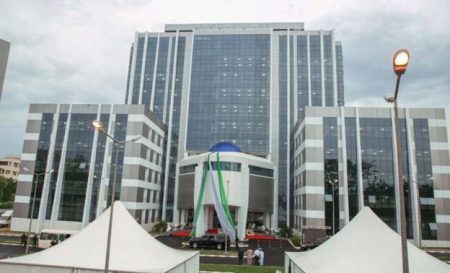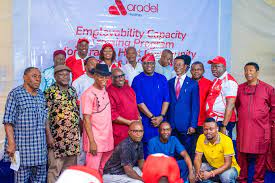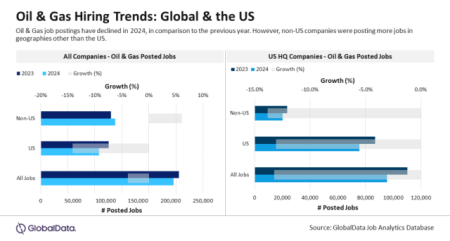 04 August 2013, Lagos – Minister of Labour and Productivity, Chief Emeka Wogu, was the head of Federal Government delegation comprising three other ministers and representatives of five other ministers on a sensitization and appraisal visit as well as tour of project sites in Kaduna and the North-west Zone on the Community Services, Women and Youths Employment, CSWYE, project of the Subsidy Reinvestment and Empowerment Programme, SURE-P.
04 August 2013, Lagos – Minister of Labour and Productivity, Chief Emeka Wogu, was the head of Federal Government delegation comprising three other ministers and representatives of five other ministers on a sensitization and appraisal visit as well as tour of project sites in Kaduna and the North-west Zone on the Community Services, Women and Youths Employment, CSWYE, project of the Subsidy Reinvestment and Empowerment Programme, SURE-P.
In this interview, Wogu speaks on the assessment. Excerpts:
What is the reason behind the tour?
The purpose of my visit is to sensitize the public on what we aredoing to fufil the promise of President Goodluck Jonathan to Nigerians to use part of his savings from the partial removal of oil subsidy to cushion the effect of that policy. The President promised to deliver this promise through the Subsidy Reinvestment and Empowerment Programme, SURE-P, of which the Community Service, Women and Youth Employment, CSWYE, project is a sub-component under the Social Safety Net Programme, SSNP. We are also trying to explore areas of possible partnerships between the federal, state and local governments on the CSWYE project in tackling the hydra-headed problems of unemployment. We also want to see how it is impacting positively on the people in their communities, see and seek further involvement of our royal fathers, the traditional rulers.
What is CSWYE project of SURE-P all about?
This project is aimed at providing stop-gap employment opportunities to women, youths and other vulnerable persons, including people with disabilities, in their various communities. It was designed with unique features that ensure direct impact on these members of the society, who form the majority of the poor, unskilled and unemployed Nigerians, by transferring parts of the wealth saved from the partial removal of oil subsidy directly to them seamlessly, thereby empowering them economically. The programme is a social security intervention by the Federal Government, the first if its kind in the history of the country.
You have inspected some of the project sites and you met some of the beneficiaries of the CSWYE project. Has it been in the zone?
In the North-west, what we gathered at the stakeholders forum shows that a lot has been done in the zone. You know we did not go to the whole zone, rather we had representatives from each of the states there coming to Kaduna. But we had full attendance from Kaduna State of the beneficiaries. In Kaduna State, we had approximately 3,000 people who have benefitted attending the forum.
Before the stakeholders forum, I was taken to the work sites though I could not go to all the work sites because there are more than a hundred and sixty of them. I could see people doing what they are supposed to do there. So, reasonably, even on the sites that were completed, the visuals we saw showed that they had done ninety per cent of the work. In terms of the obligations of government to the beneficiaries, we have paid them up to June 2013, that is the stipends that are supposed to be paid and the tools that are supposed to be given.
I am highly impressed; I am equally highly impressed with the feedback we are getting. Even the criticism from some of the beneficiaries, we are looking at it, because that is the essence of this sensitization and appraisal tour of all the geo-political zones. The outing here, I will rate it as highly successful. It is an improvement on what we saw in the South-south.
I think as we progress to the other zones, we will see more improvements. The number of complaints is reducing because we have a handsome approach to issues. Soon, I and my colleagues in the inter-ministerial committee would look at some of the issues that came up to improve on what we would do in other geo-political zones.
Some of them have complained of inadequate tools?
Those complaints, we have noted them and you know these tools are not tools that are supposed to last forever. So, it depends on handling. Some could be careless with the handling of the tools; you don’t expect them to last for a long time. Most of the complaints we got concern the replacement of the ones that got spoilt.
What you are doing to accommodate youths who still want to be involved?
You could see at a point when I was talking, the beneficiaries went wild jubilating; they were shouting “mungode! mungode!!” (thank you) to Mr. President for putting this in place and that if this thing has not been put in place, most of them would still have remained unemployed. In fact, they were so happy, coming at the time of fasting when you expect them to be weak. They asked for more and we are going to address the issue. 2,000 more people are going to be engaged all over the country. But the message is clear that government has done well, but that we should equally open it up so that more people will be engaged.
How sustainable is the programme?
This is a programme that has to be sustained as far as we keep receiving budgetary allocation from the National Assembly as appropriated. We would make estimates of what it would take us to continue the project. So, the rest depends on legislative approvals.
Still on sustainability, what was required for the year is about N20 billion. But, so far, it is said that only N5 billion has been released. Is this not affecting the implementation of the programme?
Let me put the record straight. There are a lot of figures that have been brandished about in the public. Actually, we asked for an approximately N28 billion in the estimate that went to the National Assembly, N9 billion was appropriated. That shows that there is a deficit of about N18 billion. A crucial aspect of the budget is the need for the payment of stipends and running cost in each of the 36 offices of the CSWYE aspect of the SURE-P including the FCT.
The amendment proposal to the Appropriation Act by the National Assembly which was sent by Mr. President included that of augmentation and completion of what was budgeted for SURE-P and other aspects. There were a lot of areas that were put across to the National Assembly for amendment so that governance will continue to run smoothly. This aspect of SURE-P is part of it. So, you can see that there is a huge deficit between what we proposed as estimates and what was appropriated. It is not a question of releases now, it is a question of inadequate budgeting appropriation for the project.
What is your message to the beneficiaries and those yet to benefit?
From what I gathered, they are saying that they are supporting Mr. President and the transformation agenda and we say for Mr. President to have given them this opportunity to be engaged, we expect a reciprocal attitude to the project and to what Mr. President has done, by being law abiding citizens, keeping away from crime, shuning violence and remaining focused and government will continue to support them in whatever way we can through this process of social safety net.
How do you rate the involvement of traditional rulers?
There was a large turnout of different levels of traditional institutions because I understand that in this part of the country, there are stratifications, Grade One, Grade Two or Grade A or Grade B. You could see everybody turning out, the impression, and from the statements of the representatives of the Emirs, the traditional institutions that spoke, you can see that they are overwhelmingly supporting this programme.
*Victor Ahiuma-Young, Vanguard



